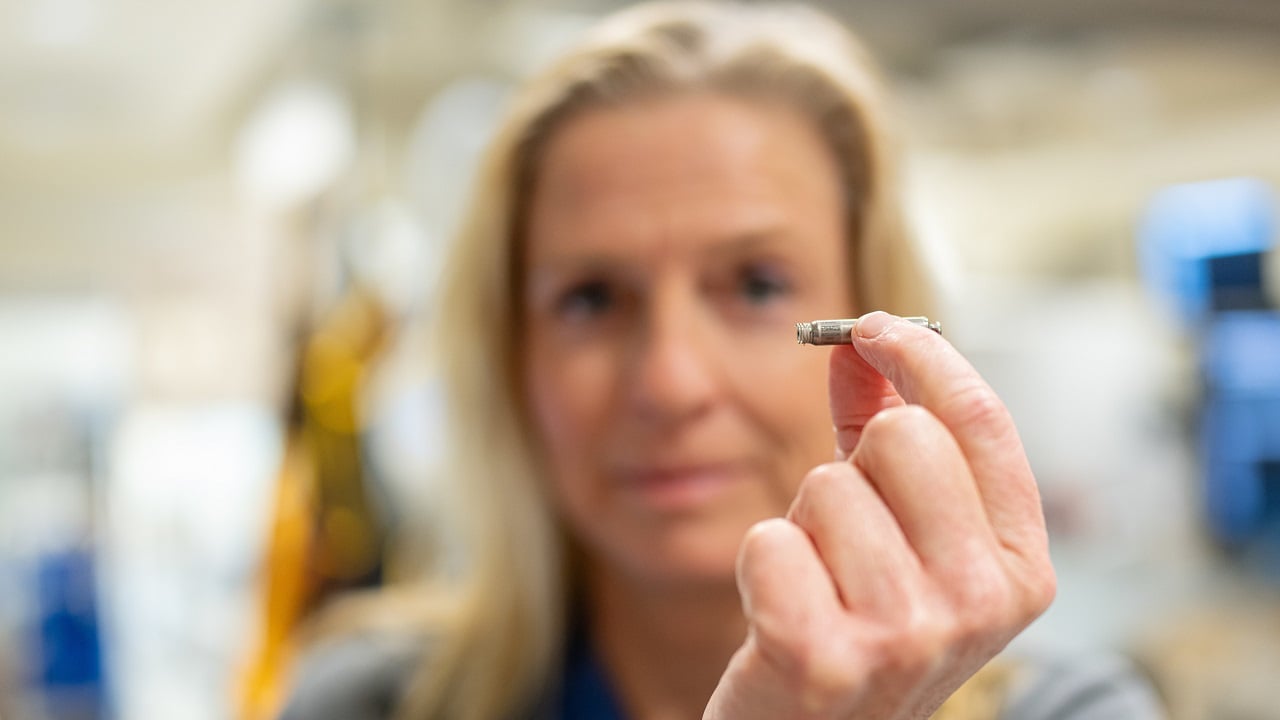Hypertrophic Cardiomyopathy
UC San Diego Health is one of just a few medical centers in California designated as a Center of Excellence by the Hypertrophic Cardiomyopathy Association.
Led by Drs. Jorge Silva Enciso and Eric Adler, our multidisciplinary team provides comprehensive services all in one place. We offer a full range of diagnostic and treatment options with experts including:
- Cardiologists
- Surgeons
- OB/GYN specialists
- Cardiac rehabilitation specialists
- Social workers
- Mental health professionals
- Genetic counselors
About Hypertrophic Cardiomyopathy
Hypertrophic cardiomyopathy (HCM) is a genetic heart condition affecting an estimated 1 in 250 people. It is usually inherited from a person's parents and can be diagnosed at any age, from birth to age 80 and beyond. However, it more commonly develops as a person grows and is usually apparent by the late teens or early 20s. Most of the affected individuals manifest symptoms by mid-life.
Hypertrophic cardiomyopathy affects the way the heart muscle works by causing it to grow thicker and stiffer than normal in certain areas, especially in the walls of the left ventricle and septum.
This makes it hard for the heart to pump blood properly and meet the body's needs, causing shortness of breath, chest pain, tiredness, or exhaustion when trying to exercise.
Let your healthcare provider know if you have these symptoms. Over time HCM may raise your risk of heart failure.
HCM and Genetic Testing for Families
Hypertrophic cardiomyopathy is one of the most common inherited cardiomyopathies, it may be passed from parent to child in some families. If you or your child has this condition, each close family member should be tested for it.
It is important to let your healthcare provider know if there is a history of sudden cardiac death in the family or death at a young age.
Our genetic counselors work with families who have concerns about their family history of heart problems and/or are interested in genetic testing. We also coordinate with the genetics program at Rady Children's Hospital-San Diego to ensure that all family members get screened to predict their risk of developing this heart condition.
Pregnancy and HCM
Women with HCM who are pregnant need extra monitoring and prenatal care. Our perinatologist, Dr. Maryam Tarsa, specializes in high-risk pregnancy and works with our HCM team to assess any additional risks and ensure the health of the mother and baby. Prenatal genetic counseling is also recommended.
How is Hypertrophic Cardiomyopathy Diagnosed?
Hypertrophic cardiomyopathy symptoms may be nonspecific. Heart problems in children are managed by a pediatric cardiologist. Several tests may be done to help confirm a diagnosis or tell us more about the heart problem and provide an optimal treatment plan tailored to your needs. These tests may include:
- Genetic testing. Since HCM is a genetic heart condition, it can be transmitted to each generation 50 percent of the time. Commercial testing is now available to determine what kind of gene mutation is causing HCM. The test is performed by drawing blood or providing a saliva sample. It is sent to the lab for processing with results returning in four to six weeks.
- Echocardiogram (echo). Sound waves (ultrasound) are used to create a picture of the heart. This helps find problems with heart structure or function, including the thickness of the heart, pumping function, and valve disease.
- Electrocardiogram (ECG or EKG). This test records the electrical activity of the heart. It helps find arrhythmias or some problems with heart size or structure.
- Holter or event monitor. This test records the electrical activity of the heart over time, ranging from 24 hours to several weeks. A special monitor is used. It can help detect problems with the heart rhythm and correlate them with your symptoms.
- Exercise stress test. This records the electrical activity of the heart while you exercise. It helps detect problems with the heart rhythm when the heart beats faster.
- Cardiac Magnetic Resonance Imaging. This produces a high-resolution image of the heart using a powerful magnetic field with radio waves that travel to the heart. This test can be used to detect and monitor cardiac disease and define the heart anatomy and function of individuals with HCM. Those with pacemakers or implanted defibrillators cannot undergo MRI as the magnet may alter the device's function.
How is Hypertrophic Cardiomyopathy Treated?
The goal of hypertrophic cardiomyopathy treatment is to reduce symptoms and prevent cardiac arrest in people at high risk. Our team will recommend the most appropriate treatment for your condition, which may include:
- Medicines. Beta-blockers and calcium channel blockers can lower blood pressure and slow heart rate. They help to prevent arrhythmias and may also improve the heart's pumping action.
- Septal myectomy. This surgery consists of removing a portion of the heart muscle that is abnormally thickened and obstructing the blood flow out of the heart. The surgery is typically performed in severe cases when there are significant symptoms that have not responded to medications.
- Alcohol septal ablation. This procedure simulates a myectomy by using catheters to relieve the obstruction and resolve symptoms. This treatment is used ideally in those who have not responded to medications and are not candidates for myectomy.
- Implantable cardioverter defibrillator (ICD). An ICD is a small device that is placed in the chest to track the heart rate. When needed, it delivers an electric shock to the heart to stop a life-threatening heart rhythm.
- Heart transplant. In rare cases, a heart transplant may be needed. The heart transplant program at UC San Diego Health ranks among the nation's top-performing transplant centers.
Patients may also benefit from a customized program at our state-of-the-art Cardiac Rehabilitation and Wellness Center, which features education on heart-healthy living – including nutrition and cooking – plus an individually monitored exercise program.
What to Expect During Your First Visit
Your first visit will generally last 45 minutes. A medical assistant will obtain your vital signs, including blood pressure, heart rate, height and weight, review your medications, and ask about your reason for the visit. An ECG will be obtained by the medical assistant prior to seeing the doctor.
If available, your doctor will review medical records in advance of the visit. Your doctor will ask about your medical history, social and family history. We will discuss your current symptoms and conduct a physical examination. This information will help to recommend diagnostic tests and potential treatments.
We may prescribe medications during your initial visit and, when applicable, discuss recommendations with your primary doctor. In some cases, you may be referred to a cardiac surgeon or another specialist for specific treatment.
After your visit, you will check out at the front desk to schedule a follow-up appointment and coordinate any tests or referrals to other specialists.
Preparing for Your Appointment
For your initial visit, we recommend you come prepared with:
- Any previous cardiac studies (echocardiogram, ECG, stress test, MRI, etc.), recent blood work reports and a list of prior interventions or surgeries.
- Information about your primary care provider or referring physician.
- A list of current medications and preferred pharmacy
Traveling to UC San Diego Health for Treatment
Since HCM runs in families, we try to coordinate appointments for individual patients as well as their family members, as needed. This is especially helpful for those who are traveling from outside the San Diego area.
Research
As an academic medical center, UC San Diego Health is a leader in basic science and clinical research while providing excellent care for patients with HCM. Our providers conduct studies that identify disease expression of specific types of HCM, which can lead to the discovery of new treatments.
Additionally, we are involved in clinical trials for patients with HCM to evaluate novel therapies that can lessen the effects of HCM on the hearts of affected individuals.More About Clinical Trials at UC San Diego Health



